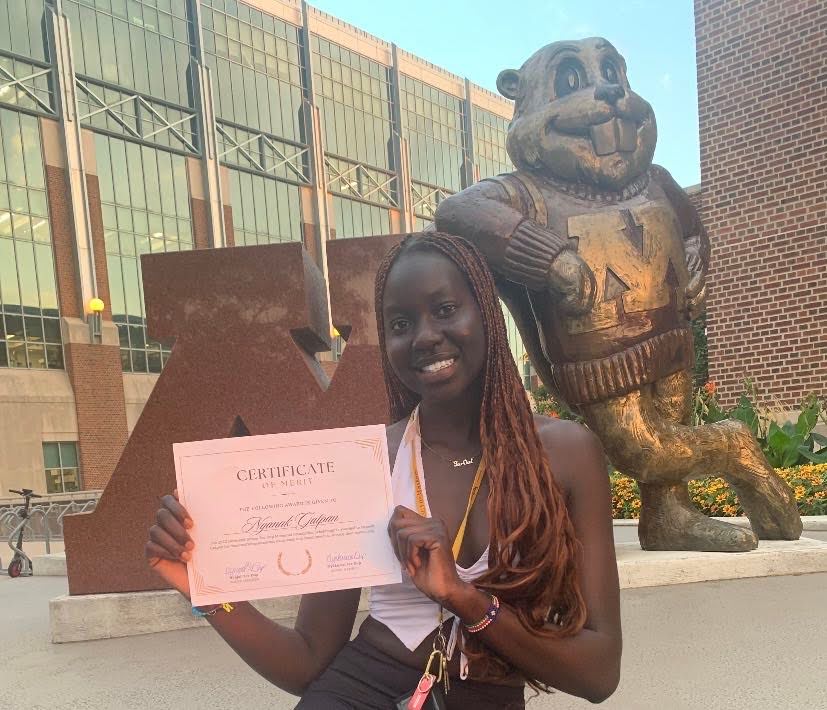Nyanak Gatpan

Nyanak Gatpan is a first-generation health and wellbeing science student who will graduate this May. She has ethnic affiliations to South Sudan and is involved with the PES and TRIO Student Support Services programs.
“Being a first-generation student, it can be a little scary, because it’s not like you can ask your mom and dad, (and) be like, ‘Hey, when you were in college around this time, how did you get through this or how did you manage this?’ You can’t really ask someone you’ve known your whole life, like a family member, for advice. So that’s a scary part, but it’s also nice. It’s fun because you are making your own experiences and you’re out there learning firsthand.
I think from an African household, my parents are very traditional, and what they really wanted for me and my siblings is to graduate high school and to graduate college. So I feel like the degree that I’m getting is not just for me, but it’s also for my mom and dad.
To move to a different continent, to a different country, a different environment, a different language, that’s hard. I can imagine how difficult that must have been in the early ‘90s for them. And so I didn’t want their sacrifice to be for nothing… And I knew that it meant a lot to my dad that I went to college and graduated, got a degree and got a very nice, well-paying job so I can be able to take care of myself and my future family.
As a Black woman at a PWI with a large student body of 50,000 people, I often notice sometimes I’ll be the only Black woman in the room or Black person sometimes, so behind my first-generation identity is my Black woman identity. It can feel isolating but on the other side of things, it pushed me to look for my community, it pushed me to kind of not feel boxed in.
It feels great that I made it… I went through a lot in my junior year and I considered kind of just taking a break, but I had support that reached out to me, and they were like, ‘Whatever you want to do, we’re gonna support you.’… I made myself proud and I’m gonna make my parents proud when I walk across that stage.
If anyone is out there that feels ashamed of being first-generation, I feel for you if you feel that way, but I don’t think it’s anything to be ashamed of. It’s like we are paving the way and I think that’s a great feeling.”
Interview by Amirah Razman
This interview has been edited for length and clarity.

